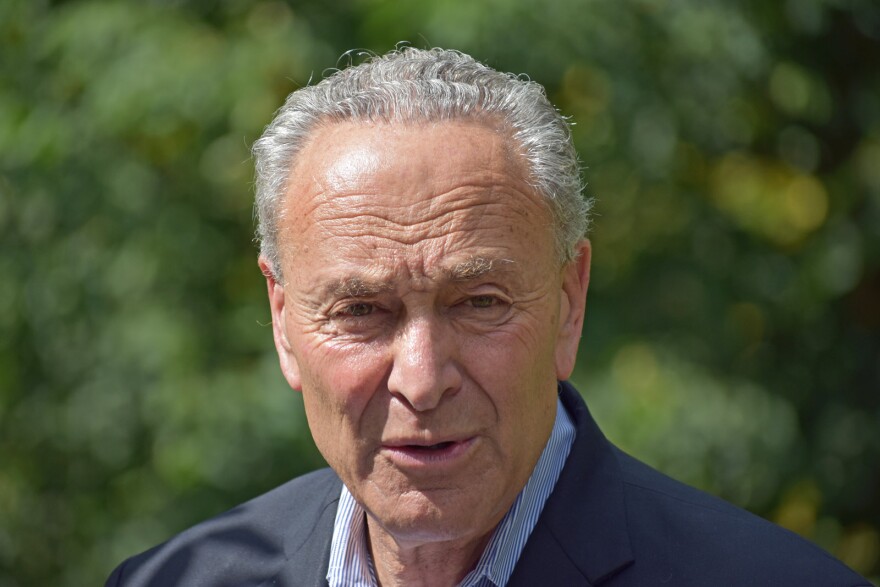Opponents of a cryptocurrency mining plant in the Finger Lakes are asking U.S. Senators Chuck Schumer and Kirsten Gillibrand to take a stand against the plant. They say the facility could set a precedent for what they say are other energy-draining and polluting plants poised to start operating in the near future.
The Greenidge Generation power plant, on the shores of Seneca Lake in the heart of Finger Lakes wine country, is at the site of a defunct coal-burning facility. The company originally was approved to operate a gas-burning plant at a low level of power to fill energy needs when the power grid reached its peak during hot or cold spells.
But it later expanded into cryptocurrency mining, which requires vast amounts of energy to run thousands of computers to “create” the bitcoins.
Yvonne Taylor, with Seneca Lake Guardian, a group that is trying to protect the lake, says the plant is polluting the air and harming wildlife.
“We’ve got New York State playing host to 20% of all the crypto mining in the United States,” said Taylor. “The Greenidge facility itself, when it’s fully operational, will be emitting over a million tons of CO2 equivalents in the air every year.”
She says that’s equivalent to 100,000 homes and more than what’s used by many small towns in the state.
Taylor says the plant also threatens the region’s agriculture and tourism industry, which employs 60,000 people.
And she says it also flies in the face of the state’s 2019 Climate Leadership and Community Protection Act, which aims to reduce greenhouse gas emissions by 85% by 2050.
Governor Kathy Hochul’s administration recently postponed, for three months, a decision on whether the Greenidge plant could continue to operate. It will not issue a decision until two days after the June primary for governor.
Taylor says that’s why her group and over two dozen other environmental groups have written a letter to Schumer and Gillibrand, calling on them to get involved.
“We need Senator Gillibrand and Senator Schumer to show leadership,” Taylor said. “By taking a more active role in this issue.”
Taylor says the Senators also need to “remind” Governor Hochul that her responsibility is to New Yorkers and not “climate busting crypto bros.”
The letter says:
“New Yorkers elected our senators to advocate for sane policy that is in our best interest, not sit quietly while a Connecticut-based private equity firm destroys our region and sets a dangerous precedent for the rest of the nation all to make a select few very, very rich.
We understand that you both have a positive relationship with Governor Hochul, who has been mostly silent on this issue. We are asking for you both to show her what bold climate leadership looks like by accepting our invitation for a tour and taking a stand on one of the biggest emerging threats to the climate and New York’s energy goals. Meet with the New Yorkers whose livelihoods are suffering because of Greenidge, in the region that Senator Gillibrand pushed to be made a National Heritage Site.”
The state’s environmental commissioner, Basil Seggos, recently told WSKG public radio in Binghamton that he continues to have “significant concerns” about whether the agency can renew the plant’s air emission permits because it is at odds with the state’s climate goals.
But even if the Department of Environmental Conservation denies the permit renewal, it would not outlaw future cryptocurrency mining. The practice exists in a gray area of state law.
Another former coal-burning plant in North Tonawanda is poised to become another crypto mining site, and there could be others, Taylor says.
“And that’s our concern,” Taylor said. “Because Greenidge seems to be the test case for how all the power plants that are either underutilized or decommissioned across New York state are going to fall.”
She says the Greenidge plant could provide a blueprint for the owners of the other plants on how to go forward.




